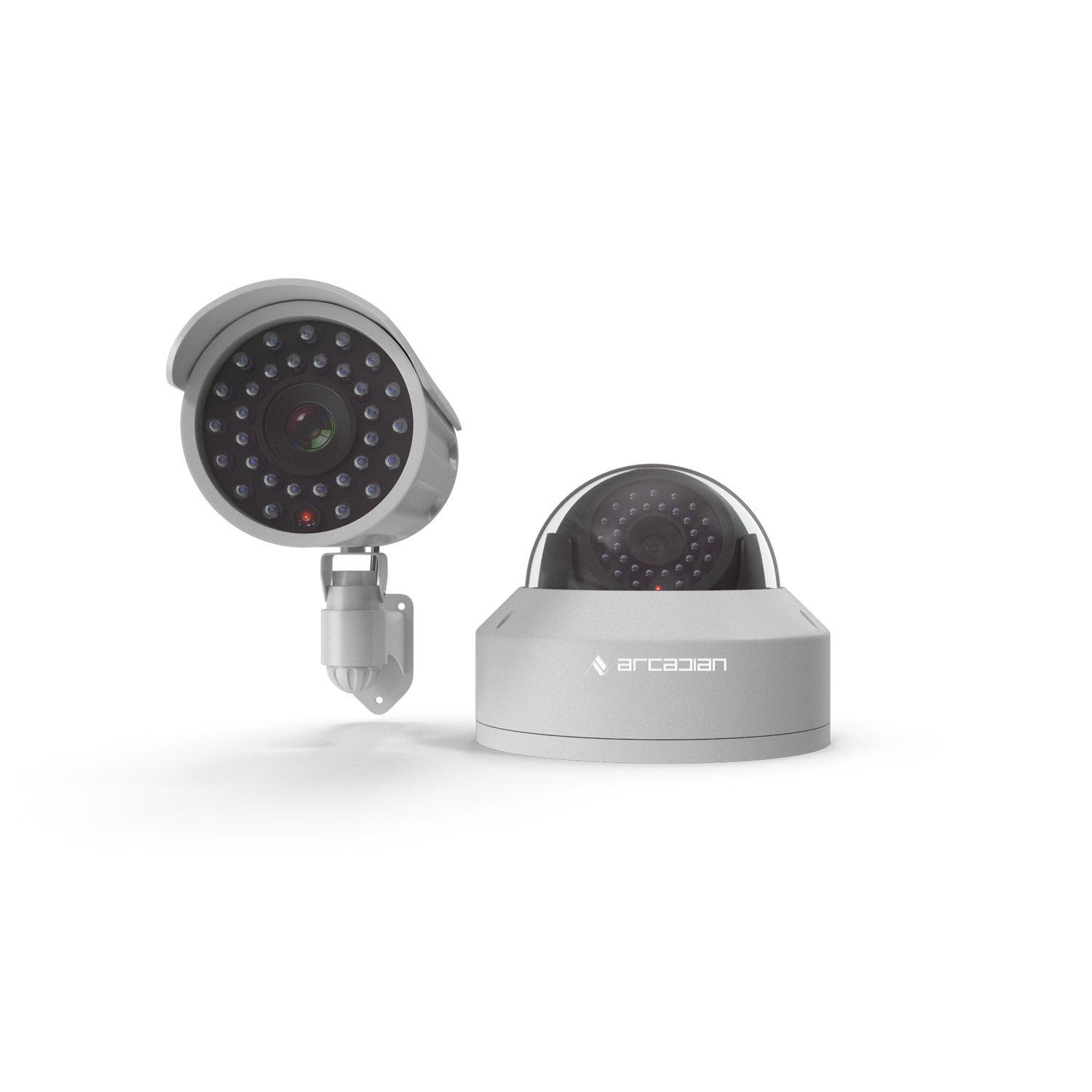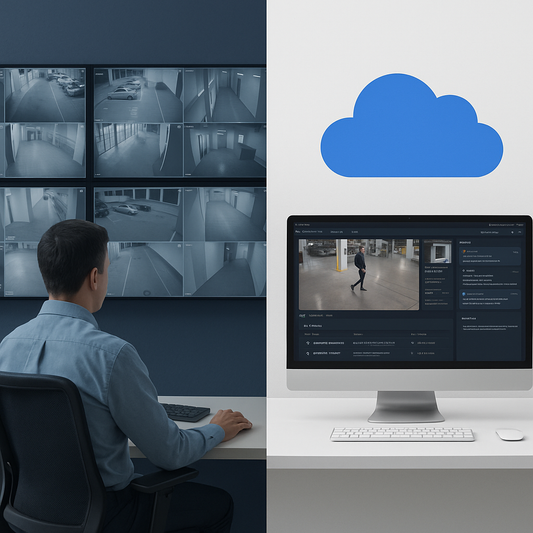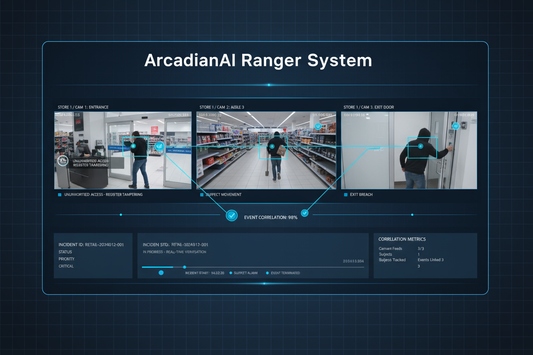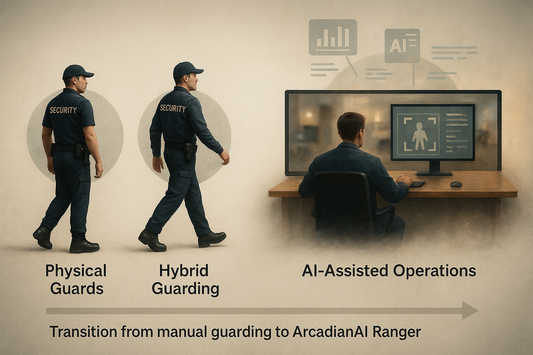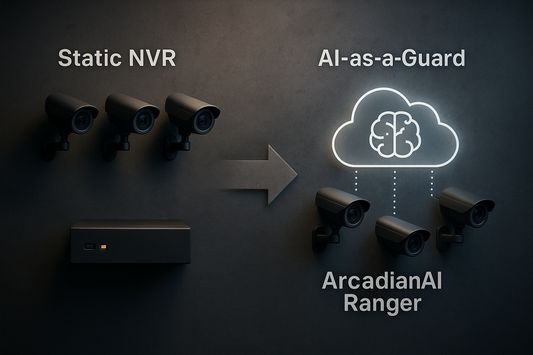Why Cloud Surveillance is Essential for Modern Retail Security
Retail security is evolving, and cloud surveillance is at the heart of this transformation. As stores face increasing risks—from theft to operational inefficiencies—traditional security systems often struggle to keep up. Cloud surveillance offers a scalable, flexible, and cost-effective solution, enabling real-time monitoring, data-driven insights, and a proactive approach to store...
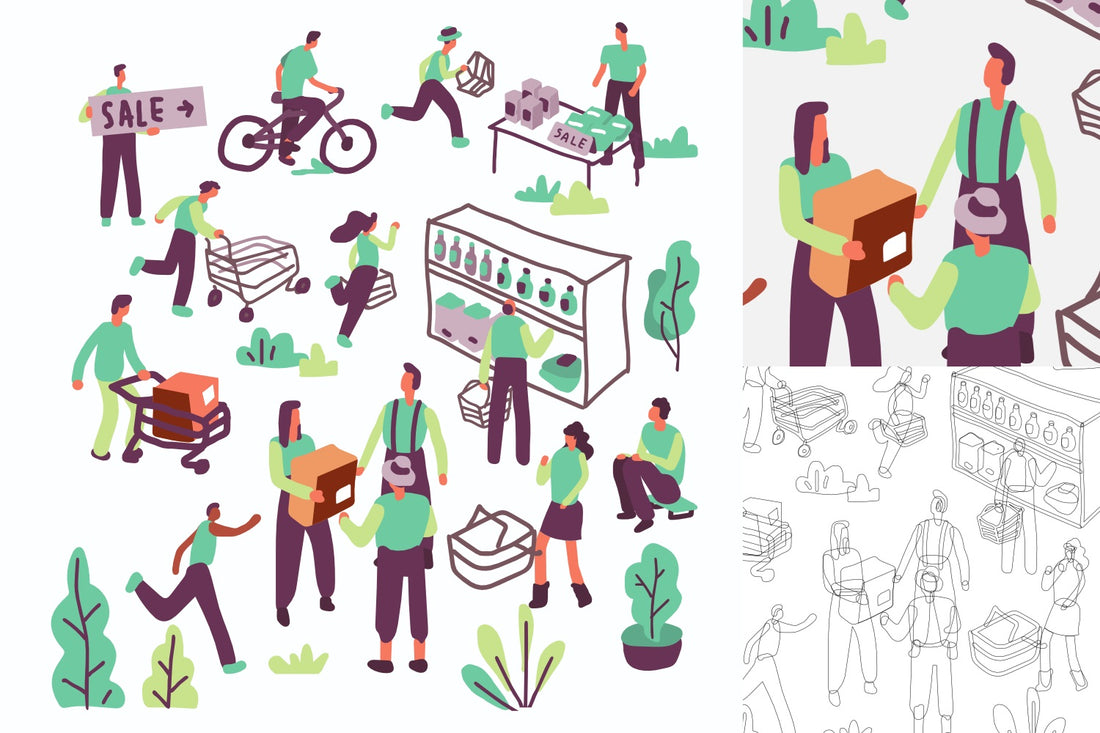
Retail security is evolving, and cloud surveillance is at the heart of this transformation. As stores face increasing risks—from theft to operational inefficiencies—traditional security systems often struggle to keep up. Cloud surveillance offers a scalable, flexible, and cost-effective solution, enabling real-time monitoring, data-driven insights, and a proactive approach to store security.
In this blog, we’ll explore why cloud surveillance is indispensable for retail businesses and how it helps retailers stay ahead of security challenges while improving overall operational efficiency.
1. Real-Time Monitoring Across Multiple Locations
For retailers managing multiple stores, cloud surveillance provides centralized, real-time monitoring across all locations. This capability allows security teams to access live feeds, review incidents, and manage operations from one platform, regardless of where the stores are located.
Imagine a brand like Target overseeing security across hundreds of stores. Cloud surveillance enables Target’s team to monitor all locations seamlessly, responding to issues quickly and ensuring each store is protected around the clock. This centralized approach saves time, reduces complexity, and improves response times for potential incidents.
2. Enhanced Loss Prevention and Theft Detection
Shrinkage due to theft and loss is one of the biggest challenges for retailers. Cloud surveillance solutions leverage AI-powered analytics to detect suspicious behavior, such as shoplifting or unauthorized access, in real time. Advanced features like facial recognition and behavioral analysis can alert security teams to potential issues instantly.
Consider a retail chain like Walmart, which faces significant challenges in preventing loss. With AI-driven cloud surveillance, Walmart’s security team can spot and respond to potential theft before it happens, minimizing losses and protecting valuable inventory.
3. Cost Savings with Minimal Hardware Requirements
Traditional on-premises security systems require extensive hardware and maintenance, which can become costly over time. Cloud surveillance reduces this need for heavy infrastructure by providing a cloud-based solution that stores data remotely and requires minimal physical setup.
For a small retailer like Ace Hardware, the lower upfront costs and reduced maintenance make cloud surveillance a more affordable option, allowing them to allocate resources elsewhere without compromising on security.
4. Improved Customer and Staff Safety
Cloud surveillance systems offer real-time video monitoring, enabling security teams to watch for any incidents that could threaten customer or staff safety. By identifying issues like unauthorized entry, altercations, or suspicious behavior, cloud surveillance systems help create a safer shopping environment.
For example, a retailer like Best Buy can use cloud surveillance to monitor high-traffic areas, ensuring customer safety and addressing incidents before they escalate. This proactive approach to security helps retailers maintain a positive experience for shoppers and staff alike.
5. Enhanced Data Privacy and Secure Video Storage
Data security is critical in retail, where customer interactions and transactions are constantly being monitored. Cloud surveillance systems store video data securely in encrypted formats, ensuring compliance with data protection standards and safeguarding against unauthorized access.
Consider a retailer like Nordstrom, known for its focus on customer experience. Cloud-based, secure storage allows Nordstrom to protect sensitive video data and comply with privacy standards, building customer trust while maintaining an effective security system.
6. Scalable Solutions for Growing Retailers
As retailers expand, their security needs grow. Cloud surveillance offers scalable options, allowing stores to add more cameras and storage without needing a complete overhaul of the system. This flexibility supports business growth, making it easier to manage security needs as the company grows.
Imagine a brand like H&M, opening new stores regularly. With cloud surveillance, H&M can seamlessly add security coverage to new locations, ensuring consistent security standards across all stores and adapting to the company’s growth.
7. Advanced Analytics for Operational Efficiency
Beyond security, cloud surveillance provides valuable data insights that help improve store operations. Heat mapping, customer flow analysis, and dwell time tracking are examples of analytics that cloud surveillance systems can offer, enabling retailers to make data-informed decisions about store layout and staffing.
A retailer like Sephora could use these analytics to optimize its store layout, identifying high-traffic areas and adjusting product placements to improve customer flow and maximize sales. This dual functionality of security and operational insights makes cloud surveillance a valuable asset.
8. Remote Access and 24/7 Oversight
Cloud-based surveillance offers remote access, allowing managers to check in on stores anytime, from anywhere. This feature is especially useful for retail chains with geographically dispersed locations, ensuring that security isn’t compromised due to distance.
For instance, Dollar Tree can have its security managers monitor all stores remotely, ensuring that each location maintains high security standards regardless of where it’s located. This 24/7 oversight gives managers peace of mind, knowing they can keep an eye on every store without being physically present.
9. Supporting Regulatory Compliance
Retailers must adhere to certain regulations when it comes to data handling and surveillance, especially in regions with strict privacy laws. Cloud surveillance providers typically offer built-in compliance features that help retailers meet these standards without compromising security.
Consider Walgreens, which needs to handle customer data with care due to regulatory requirements. Cloud surveillance providers ensure that Walgreens’ video data is managed in compliance with these regulations, allowing the company to focus on security without legal concerns.
10. Future-Proofing Security with Technology Upgrades
Technology is constantly evolving, and cloud surveillance systems offer regular updates and feature upgrades, keeping retailers at the forefront of security advancements. This future-proofing capability means that retailers won’t need to invest in new systems frequently, as their existing cloud solutions adapt to new tech developments.
A company like Apple Retail could benefit from these ongoing updates, ensuring that its surveillance system remains modern, secure, and equipped with the latest AI analytics without requiring a full system overhaul every few years.
Lisa’s Story: Protecting Her Retail Chain with Cloud Surveillance
Lisa, a manager for a growing retail chain, needed a reliable, scalable security solution that could keep pace with her company’s expansion. Since adopting Arcadian.ai’s cloud surveillance platform, Lisa has been able to monitor all locations from a single dashboard, receive instant alerts for potential threats, and make informed decisions to enhance store safety and efficiency.
One evening, the system flagged unusual behavior in a store’s electronics section, allowing Lisa’s team to respond and prevent a potential theft. Additionally, the platform’s analytics helped Lisa optimize store layouts based on customer traffic, improving the shopping experience. With Arcadian.ai, Lisa is confident that her stores are secure, and her business is prepared for future growth.
Want to see how cloud surveillance can transform your retail security? Discover the benefits of Arcadian.ai’s advanced, scalable solutions tailored to meet the demands of modern retail. Schedule a demo today.

Security is like insurance—until you need it, you don’t think about it.
But when something goes wrong? Break-ins, theft, liability claims—suddenly, it’s all you think about.
ArcadianAI upgrades your security to the AI era—no new hardware, no sky-high costs, just smart protection that works.
→ Stop security incidents before they happen
→ Cut security costs without cutting corners
→ Run your business without the worry
Because the best security isn’t reactive—it’s proactive.
